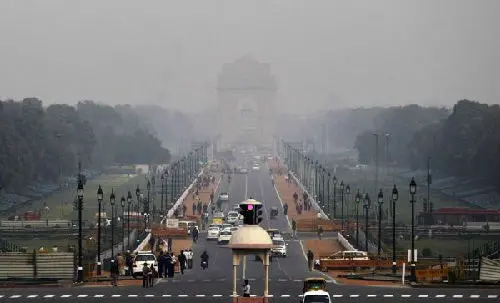As registration officially closed for candidates running for Lebanon's upcoming parliamentary elections, the country inches closer in holding its first elections since 2009, but analysts expect nothing to change.
Under Lebanese law, 128 chairs are elected to sit for a four-year term. However, the country's 29-month-long presidential vacuum ending in October 2016, compounded with the Syrian civil war, has allowed current parliamentarians to extend their mandate twice.
According to Karim Emile Bitar, research director at French Institute for International and Strategic Affairs (IRIS), such an extension was "illegal."
Still, it went unchallenged as Lebanon faced domestic political turmoil and threat of spillover from its eastern neighbor Syria.
Scheduled for May 6, the election will mark the first time a generation of Lebanese electors, some nearly 30 years old, will have ever casted a ballot.
Despite the flood of young voters, lack of alternative options and the country's deep-seeded sectarian politics will likely result in a similar parliament with few exceptions.
"These elections do not seem to give much hope to reformers basically because the electoral law that was tailor made to the advantage of an existing political establishment," Bitar said, referring to the new proportional electoral law passed last summer.
"There is very little possibility of breakthrough even with this new electoral law. People who want to challenge the current establishment find themselves stuck because clientelism is the name of the game. The current political parties have an extensive patronage network and have basically divided the spoils," he explained.
Lebanon's last election was held under a 1960s voting law allowing each sectarian group a particular number of parliamentary seats based on a quota per district. Candidates, however, could be elected by all voters regardless of sect.
The current electoral law, which was passed last June, came after months of heated debate. The new proportional representation law is a first for Lebanon since its independence in 1943, according to local newspaper The Daily Star.
Despite its novelty, most regard it as a reshuffling rather than a significant reformation on the previous electoral law's inadequacies.
For independent candidates, proportional representation will do little in improving their chances to attain a seat after all.
Still, 111 women have registered to run this year, a record for the small Levantine country. Several independent parties such as Sabaa, which was formed in 2017, and Tahalof Watani, have also made their names known.
Paula Yacoubian, a prominent Lebanese media personality, has even resigned from the established Future Movement to run as a candidate with Sabaa.
Nevertheless, bribery and corruption bonding political parties to their sectarian groups are far too strong in Lebanon for new contenders to rise to the top, Bitar pointed out.
When livelihood of voters heavily rely on handouts from political parties, democracy becomes nearly impossible, he said.
Hilal Khashan, professor of political studies at the American University of Beirut and author of Inside the Lebanese Confessional Mind, held a similar point of view.
Taking it a step further, he likened the strategies of the current political establishment to a "cartel," as "there is nothing unusual about the coming parliamentary elections."
"The majority of contenders are the scions of all the same political parties. Plus, major politicians are in the process of bargaining among one another because Lebanese politics is all about accomodation," he lamented.
"If there was real democratic competition, it would lead to a civil war," Khashan said, in reference to the 1989 Taif peace agreement which ended Lebanon's 15-year-long civil war by creating a sectarian balance between the president, prime minister and speaker of parliament.
The Lebanese professor also pointed to the extreme difficultities for independent candidates to succeed in the elections given the existing structure.
"Lebanese ruling politicians are an elite cartel. Despite their divisions, they have a vested interest in protecting their ranks. It is extremely difficult for an independent candidate or a newly rising block from civil society to make or break the mold," he noted.
While all agree that elections will not lead to radical progress for Lebanon, Makram Rabah, a political analyst and lecturer at the American University of Beirut, viewed the elections as positive despite all their deficiencies.
"This current election and will once and for all silence the voices that say elections are the way to go for all reform," Rabah said.
"While it would only be a small step in Lebanon's long-winded journey toward democracy, the election is necessary," he concluded.
(ASIA PACIFIC DAILY)
 简体中文
简体中文

